Quotes & Sayings About Prophet's Sayings
Enjoy reading and share 5 famous quotes about Prophet's Sayings with everyone.
Top Prophet's Sayings Quotes
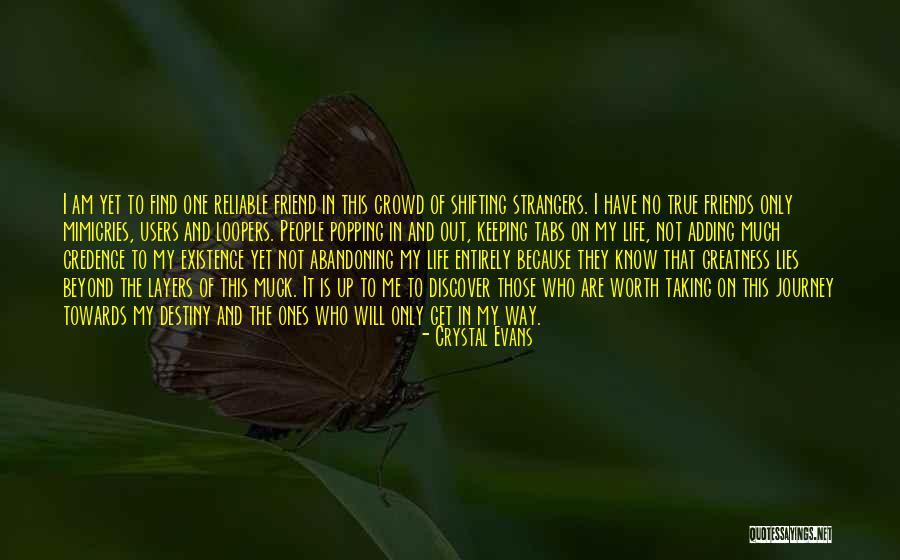
I am yet to find one reliable friend in this crowd of shifting strangers. I have no true friends only mimicries, users and loopers. People popping in and out, keeping tabs on my life, not adding much credence to my existence yet not abandoning my life entirely because they know that greatness lies beyond the layers of this muck. It is up to me to discover those who are worth taking on this journey towards my destiny and the ones who will only get in my way. — Crystal Evans
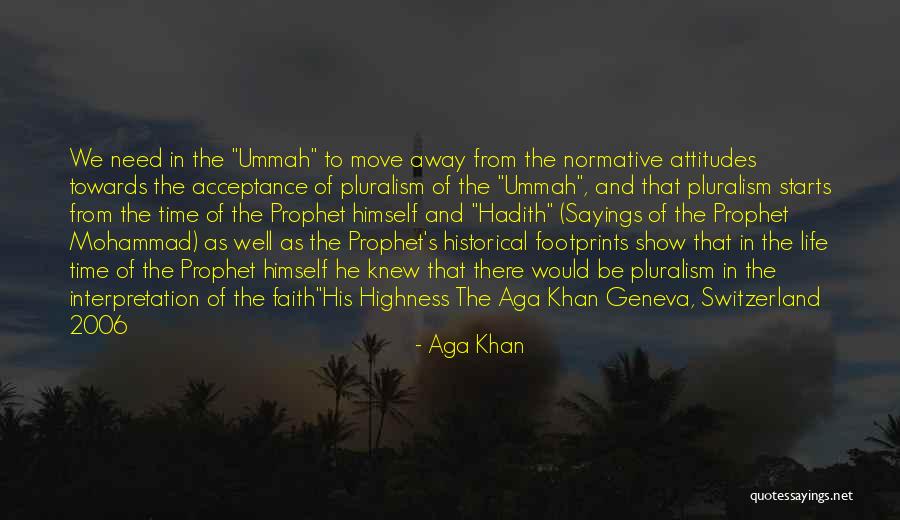
We need in the "Ummah" to move away from the normative attitudes towards the acceptance of pluralism of the "Ummah", and that pluralism starts from the time of the Prophet himself and "Hadith" (Sayings of the Prophet Mohammad) as well as the Prophet's historical footprints show that in the life time of the Prophet himself he knew that there would be pluralism in the interpretation of the faith"
His Highness The Aga Khan Geneva, Switzerland 2006 — Aga Khan
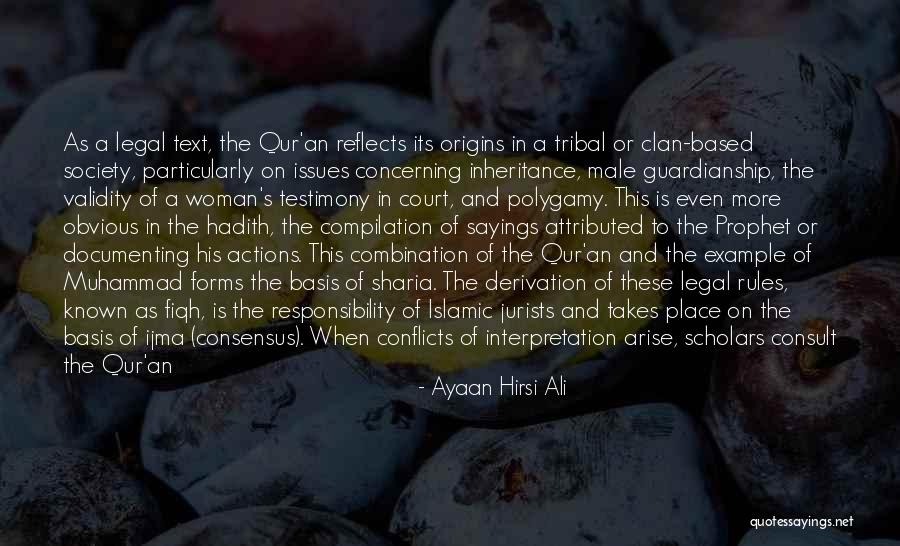
As a legal text, the Qur'an reflects its origins in a tribal or clan-based society, particularly on issues concerning inheritance, male guardianship, the validity of a woman's testimony in court, and polygamy. This is even more obvious in the hadith, the compilation of sayings attributed to the Prophet or documenting his actions. This combination of the Qur'an and the example of Muhammad forms the basis of sharia. The derivation of these legal rules, known as fiqh, is the responsibility of Islamic jurists and takes place on the basis of ijma (consensus). When conflicts of interpretation arise, scholars consult the Qur'an and hadith. — Ayaan Hirsi Ali
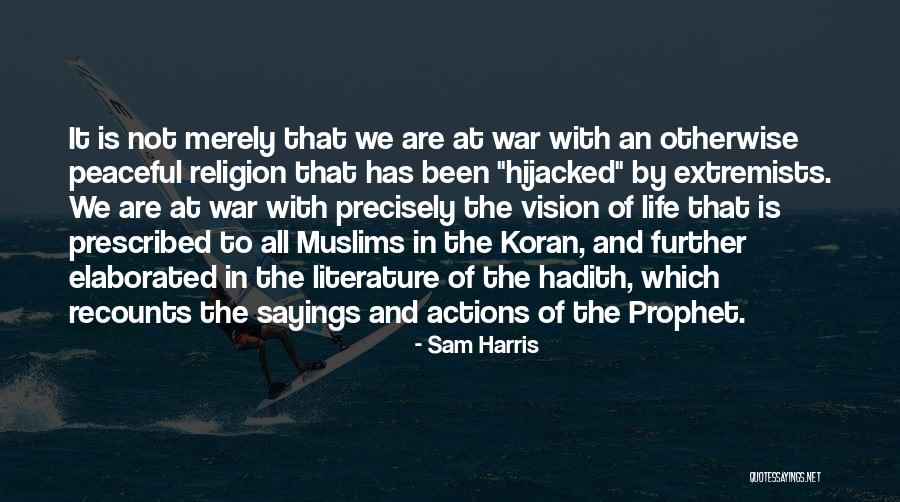
It is not merely that we are at war with an otherwise peaceful religion that has been "hijacked" by extremists. We are at war with precisely the vision of life that is prescribed to all Muslims in the Koran, and further elaborated in the literature of the hadith, which recounts the sayings and actions of the Prophet. — Sam Harris
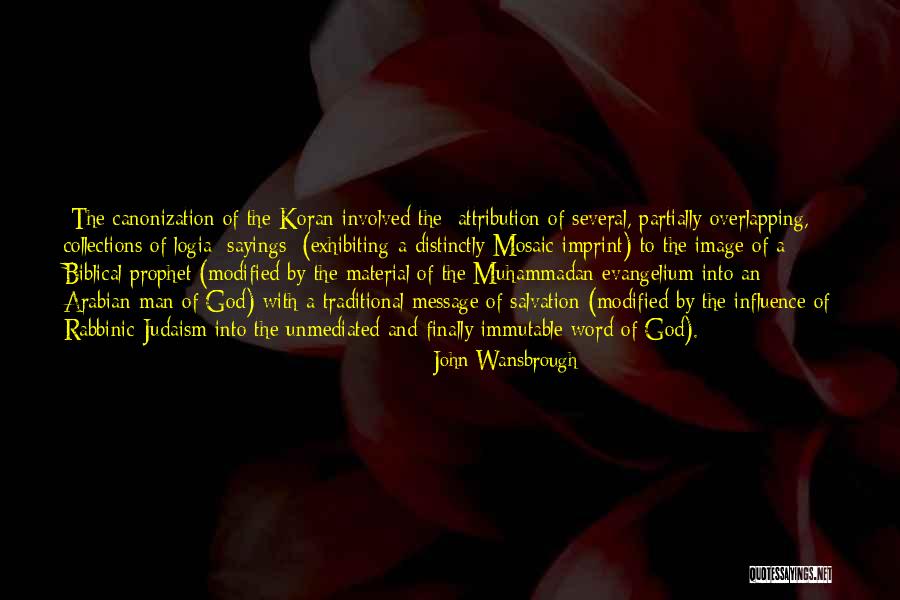
[The canonization of the Koran involved the] attribution of several, partially overlapping, collections of logia [sayings] (exhibiting a distinctly Mosaic imprint) to the image of a Biblical prophet (modified by the material of the Muhammadan evangelium into an Arabian man of God) with a traditional message of salvation (modified by the influence of Rabbinic Judaism into the unmediated and finally immutable word of God). — John Wansbrough





